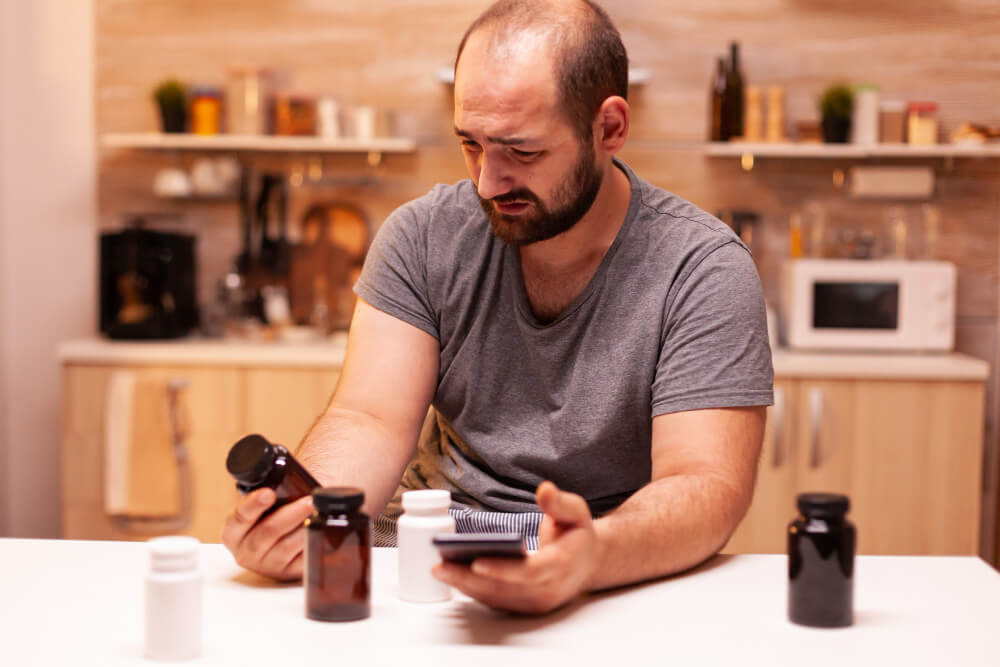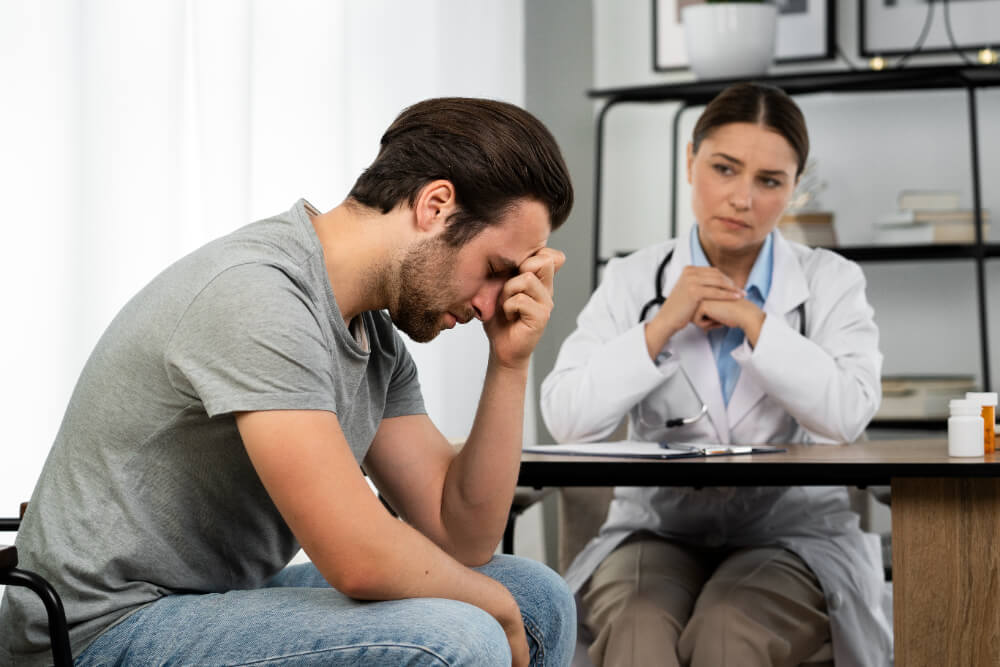Low testosterone and depression are two conditions that can markedly impair a man’s quality of life. They can happen independently of each other, but evidence shows associations between the two. Low testosterone, or hypogonadism, is a common condition in many men – mostly as they grow older.
Low testosterone is very common in men, especially as they age. Various research proves that up to 10 to 40% of men over the age of 45 have low levels of testosterone.
Depression affects about 6 million men in a year in the U.S. alone. Often, it goes undiagnosed because men may be less likely to seek help. It is difficult to diagnose because low testosterone can overlap with symptoms of depression.
Early diagnosing and understanding of this kind of comorbidity shall really be conducive to effective treatment and can greatly improve the quality of life for men who suffer from it.
Low testosterone, or hypogonadism, is a condition in which the body does not make enough of the male sex hormone testosterone. This hormone plays a major role in many functions, such as muscle mass, bone density, and sperm production.
Depression is a mental health disorder that affects a person with persistent sadness, loss of interest, and emotional disturbances that can also cause effects on physical health and functionality. Knowing these conditions means knowing the various but sometimes overlapping descriptions of them. Here’s a whirlwind tour:
Both conditions require careful study by health professionals for proper diagnosis and management. Taking care of these issues can enhance a man’s quality of life dramatically as it deals with his physical, and psychological issues.

Healthy lifestyle changes are also needed. A balanced diet coupled with regular exercise can help in this regard. Stress-reducing techniques like meditation might also improve mental health. Adapting to these changes encourages a holistic approach toward well-being.
Depression in men often manifests as irritability, anger, or emotional numbness rather than visible sadness. They may withdraw from relationships, engage in risky behaviors, or struggle with work performance. Changes in appetite, sleep disturbances, and chronic fatigue are also common. These symptoms can strain personal and professional life, making early recognition crucial for effective intervention.
Recognizing these signs can help in identifying depression early and seeking appropriate support. Below are key symptoms to watch for:

Testosterone is not only responsible for physical characteristics, but it also has a significant role in maintaining the mood. It is essential to maintain cognitive functions and emotional stability.
Low levels of testosterone, therefore, tend to disturb brain chemistry. Such disturbances may appear as mood swings and irritability, and even depressive symptoms. Evidence supporting this association exists, since hormones and neurotransmitters – like serotonin – interact in very complex ways to regulate and maintain mood.
This would be an important understanding in creating strategies to address mental health issues in men. Proper management of the levels of testosterone may, therefore, help alleviate mood disorders and enhance general mental well-being. Understanding these biological links can thus empower men to seek help and enhance their quality of life.
Low testosterone and depression share several overlapping symptoms. These may include things like fatigue, a lack of motivation, and mood swings. Because of this similarity, it can be difficult to pinpoint the exact cause of one’s distress.
There needs to be an acknowledgement of this comorbidity for proper diagnosis and care. Men with these symptoms need to get medical attention. Physicians can clarify whether the main cause is low testosterone or depression or both the diseases coexist together. With proper identification, more excellent treatment packages can be offered.
Low testosterone has much to do with the mental health of men. Testosterone helps to regulate moods and cognitive functions. Men with low testosterone levels may feel increasingly irritable, anxious, or even apathetic.
Apart from emotional changes, low testosterone can also contribute to lowered self-confidence. Changes in body composition, such as increased body fat or decreased muscle mass, may also be experienced by men. Such physical changes added to the emotional ones are likely to further deteriorate mental health and, therefore, lead to a feeling of inadequacy or hopelessness. It is always important to work on these problems early enough with appropriate medical attention.
Diagnosis of low testosterone and depression includes a proper evaluation. The doctors tend to begin with a thorough medical history and physical examination. Blood tests are essential in obtaining accurate measurements of the testosterone level.
Healthcare providers screen for depression by using specific screening tools and diagnostic criteria. It is critical to differentiate the overlapping symptoms of low testosterone and depression to form an accurate diagnosis and create an appropriate treatment that is modified to fit an individual’s needs. Proper diagnosis ensures more targeted and successful interventions.

The effective management of low testosterone and depression calls for a few different approaches to treatment. Healthcare providers may recommend hormone therapy, changes in lifestyle, and mental health support. These means combined provide holistic care.
Possible treatment options include:
By treating hormonal and mental health, people can feel better overall. It is essential to speak with healthcare professionals to come up with a specific treatment plan.
Testosterone Replacement Therapy (TRT) is very common in men who present with low testosterone. The goal of this therapy is to bring back the normal level of hormones. Hormone replacement therapy helps in improving energy and even mood.
However, TRT can cause side effects that should be closely monitored. Regular follow-ups are of the essence in the management of such issues. The benefits and risks have to be weighed with the physician.
Those are complementary therapies to go alongside the standard treatments. The acupuncture and herbal supplements, for instance, will naturally help testosterone levels.
Healthy lifestyle changes are also needed. A balanced diet coupled with regular exercise can help in this regard. Stress-reducing techniques like meditation might also improve mental health. Adapting to these changes encourages a holistic approach toward well-being.
Healthcare providers are important in the diagnosis and treatment of low testosterone and depression. They give expert advice and direct treatment plans toward individual needs. Early diagnosis can improve treatment outcomes significantly. Patient education empowers individuals to take charge of their health. Understanding symptoms and treatment options enables informed decision-making. A well-informed patient plays an active role in achieving better health results.
Discover personalized aesthetic and wellness solutions from trusted medical experts. Enjoy advanced treatments in a comfortable, modernized results-focused environment.
Schedule Your Consultation—Let’s Redefine Confidence Together.
Secure, quick answers from our team. No spam. Standard rates apply.
Please don’t include sensitive health details in SMS.